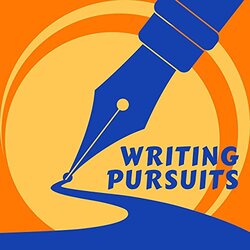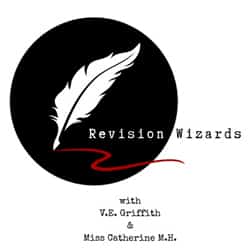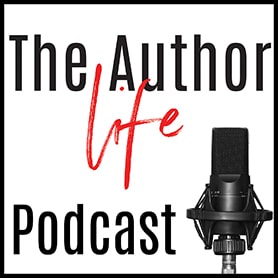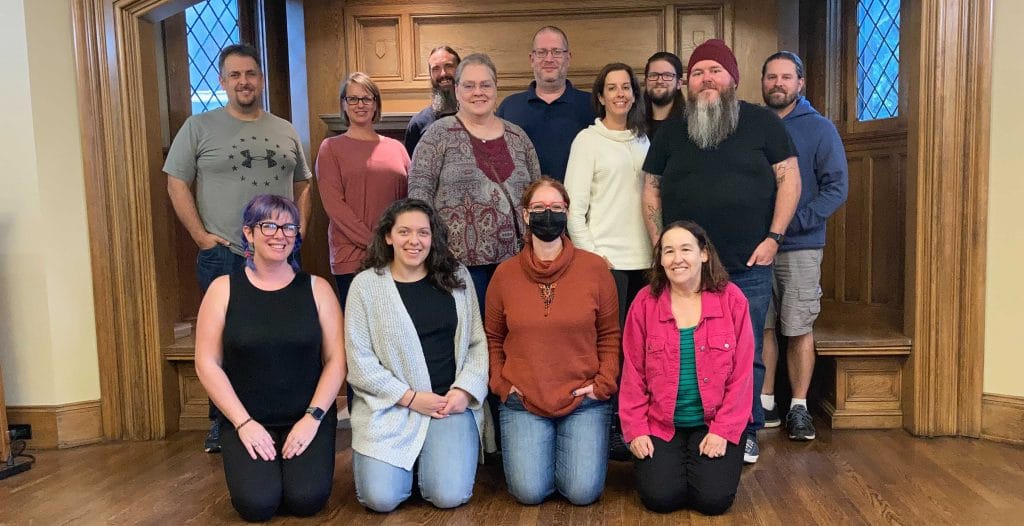A curated collection of the latest and most interesting podcast episodes about the author life.
Catherine here! I’ve been slaving away doing edits this month. As a pantser I’ve had to go through and edit a lot. I also tend to be an over writer. If you are similar to me, then here are some podcast episodes that might help you out!
Top 3 Must-Listen Episodes
Writing Roots // S34 E2 Plotting vs. Pantsing Take Two

Leigh is pantser and Ley is a plotter. Together they have created a few tips and tricks to help writers.
Plotters: Also known as architects, are writers who build the structure and then flesh it out. These are the people who are doing outlines.
Do: Set up rewards when you reach different parts of your outline to keep you motivated.
Do: Flex that muscle memory. You have your outline you don’t need to wait for inspiration. You can write every day.
Do: Allow yourself to have wiggle room.
Do: Edit according to the story you told not the story that you thought you were going to tell because stories inevitably change.
Don’t: Be so attached to your outline that you can’t see a better direction for the story.
Don’t: Remember not be so caught up in making outlines and world building that you never get around to writing the book.
Pantsers: Also known as the gardener or the discovery writer. You put things in the ground and you take care of them and tend to them until they grow into something.
Do: Push through slow times with the inspiration doesn’t seem to be there.
Do: At least know the solution to the problem that is your plot. It gives you a direction to go when there is no inspiration.
Do: Write ideas down and see if they might work. There isn’t harm in saving something to be used later.
Don’t: Stay away from your writing for to long. You will forget your voice, the story, and it will lose interest for you.
A great thing to try to do is to learn the way writing works for you. Try parts of each and come up with a hybrid system that works.
Writing Pursuits// EP 41: Seven easy ways to improve your manuscript

Kathrese McKee is at it again. Her simple and easy to understand tips help writers at all levels.
One: Check your spelling.
There are many different ai services that can help. Word, Google docs, and Grammarly all have spell check sections. This will save you and your editor time when going over the piece.
Two: Search for weasel words.
These are words we use in conversations that take up space in the story and don’t enhance it. These are words like really and very.
Three: Search for doubles.
These are words that you would use accidently twice. Plug them into the find bar and get rid of them. This will help you to bring your word count down. Examples are and and, the the.
Four: Remove hidden tab characters.
When using the tab bar there are characters that are added to the listing. It can throw off the formatting. Take the time to set up the system with the indentation happening every time you hit enter.
Five: Read your manuscript out loud.
By doing this you will hear the differences in dialog, spelling, and might even catch how often you use a phase.
Six: Insert page numbers.
This will help you, your editor, and beta readers understand where they are in the book. They can also reference material and give proper feedback.
Seven: Insert a page break before every chapter.
Don’t use the enter button, instead use the page break option in the program you are using. This will give space, save on formatting, and present a more professional manuscript to others.
Revision Wizards // E02 – Who is V.E. Griffith?

Cohost VE Griffith grew up with his stepmother being a writer. She sent him to a class when he was the age of 13. This beginning impacted his writing career and opened the door for pathways. Griffith writes urban fantasy and loves the idea of cleaning up manuscripts and helping writers become the best they are. It’s one of the reasons he became a Three Story Method Editor. He tends to lean closer to the plotting side of writing, but doesn’t mind the discovery writing as long as it comes back to the track. And according to his cohost, he is on of those bewitched people who uses scrivener.
VE Griffith has a few tips and tricks when it comes to writing and editing.
One: Use the 3Cs in your plotting and editing. It will give you a guideline and help you raise the stakes in your story.
Two: Find an editor how is willing to help not only your manuscript become better, but you yourself as a writer.
Three: Remove the passive voice from your work. A simple step to start you on that journey is to try and remove as many was, is, have, and hads from your story.
The Latest from The Author Life Podcast
74: WHY HAVE YOU CHOSEN WIDE OR KU?

This week authors J. Thorn and Crys Cain discuss what why they’ve chosen to go wide or opt in to KU (Amazon exclusive) for different projects or different phases of their career.
Question of the week: Are you leaning Wide or KU for your next project?
The Wildcard: Interesting Episode from a Non-Writing Related Show
Writing with Jenna Moreci //10 Best Tips for Reducing your Word Count

Jenna is a great youtuber who likes to tell it to authors straight. Here are her top tips.
One: Remove your filter words. Examples are see, feel, think, realized, hear, ect.
Two: Remove repetition from your book. If you’ve mentioned it once you don’t need to mention it twelve times in the same chapter.
Three: Remove filler from the story. Anything that doesn’t move your plot forward shouldn’t be in the book.
Four: Remove passive voice. This will tighten up your sentences, make reading the book faster and make you a stronger writer.
Five: Remove the extras. These are words that aren’t necessary to the sentence, but are part of the writers natural vocabulary. Example: that
Six: Look at the pacing of the story. Knowing the right times to show vs tell are important to keeping the pace of your story going.
Seven: See if you really need all that description. Can you sum it up in one sentence? Can you show it differently?
Eight: Remove your adverbs. These elongate the sentences and point out weak verbs.
Nine: Remove infodumps. You love your world, but the reader only needs what’s important to the story.
Ten: Remove the roundabouts. Adding extra steps to a sentence to sound more elegant or sophisticated slows the pacing, ands words, and could confuse the reader. Ex: Just say the “person pick up the glass”.
Inside The Author Life
Let’s get editing!

Get the APB delivered straight to your inbox!
Need some help with your story?
Three Story Method certified editors are standing by, ready to help you become a better writer. Click on our picture or visit https://theauthorlife.com/editing/ for more details!
Posted in Author Podcast Broadcast


